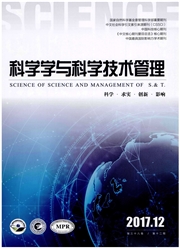
欢迎您!东篱公司
退出

 中文摘要:
中文摘要:
近年来,以职场排斥为代表的职场冷暴力愈加普遍,明确职场排斥行为的形成机制对理论研究和管理实践都具有重要的意义。在现有研究的基础上,基于焦点调节理论和社会交换理论构建了职场排斥行为形成机制的概念模型,并通过576份员工—同事的配对数据的实证分析发现,认知异质性、情感自反性、关系利益与职场排斥行为显著相关,且团队成员交换在其中起到了有调节的中介作用。
 英文摘要:
英文摘要:
Recently silent violence represented by workplace ostracism behavior(WOB) has been increasingly prevalent, so it is important for both theory and practice to identify the forming mechanism of WOB. The research constructed a model of forming mechanism of WOB and an empirical study was done. We collected and analyzed576 copies of employee-colleague paired data and we found that cognitive diversity, emotional reflexivity, relational benefits respectively correlated WOB and team member exchange had a moderated mediation effect.
 同期刊论文项目
同期刊论文项目
 同项目期刊论文
同项目期刊论文
 期刊信息
期刊信息
